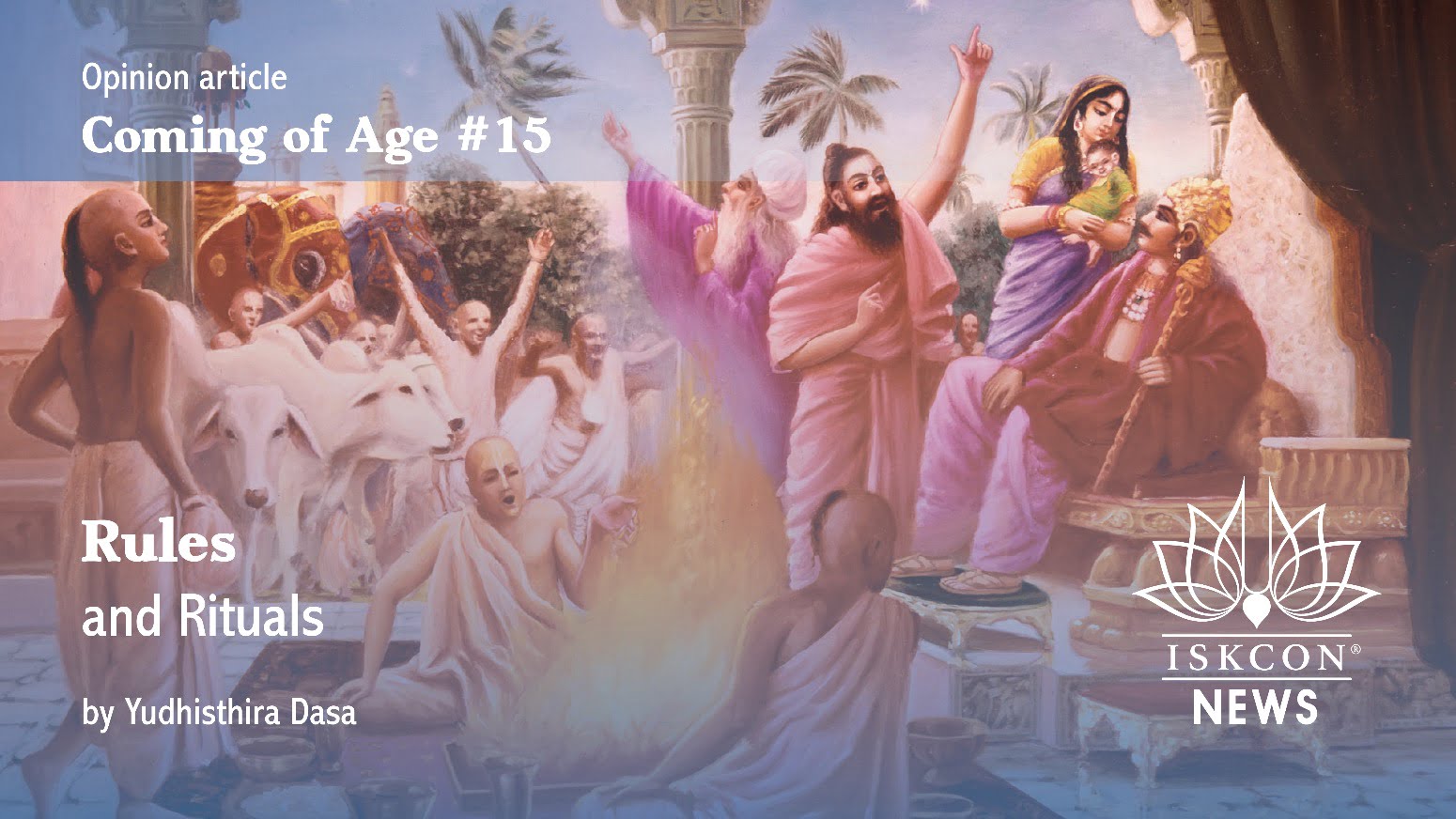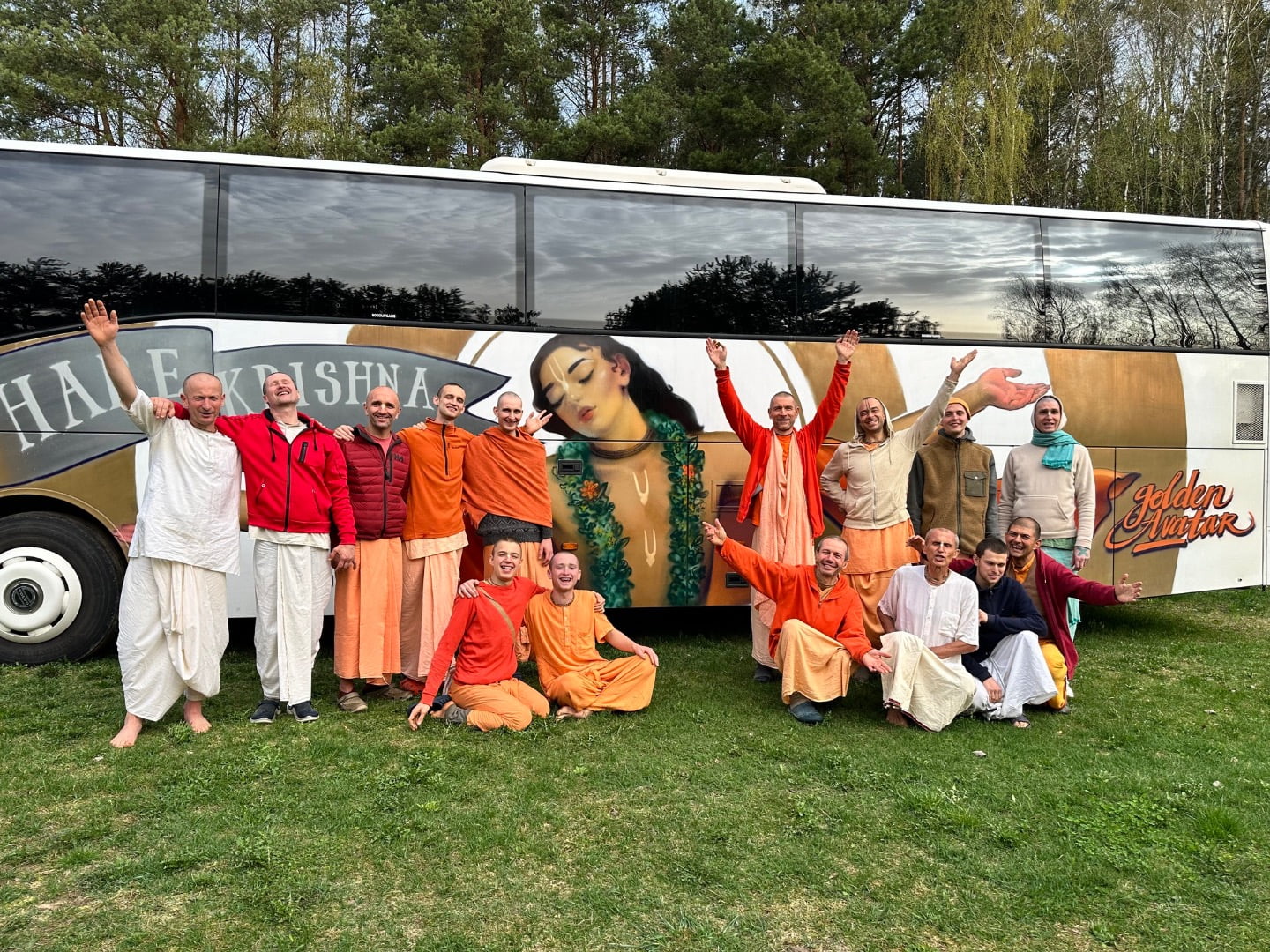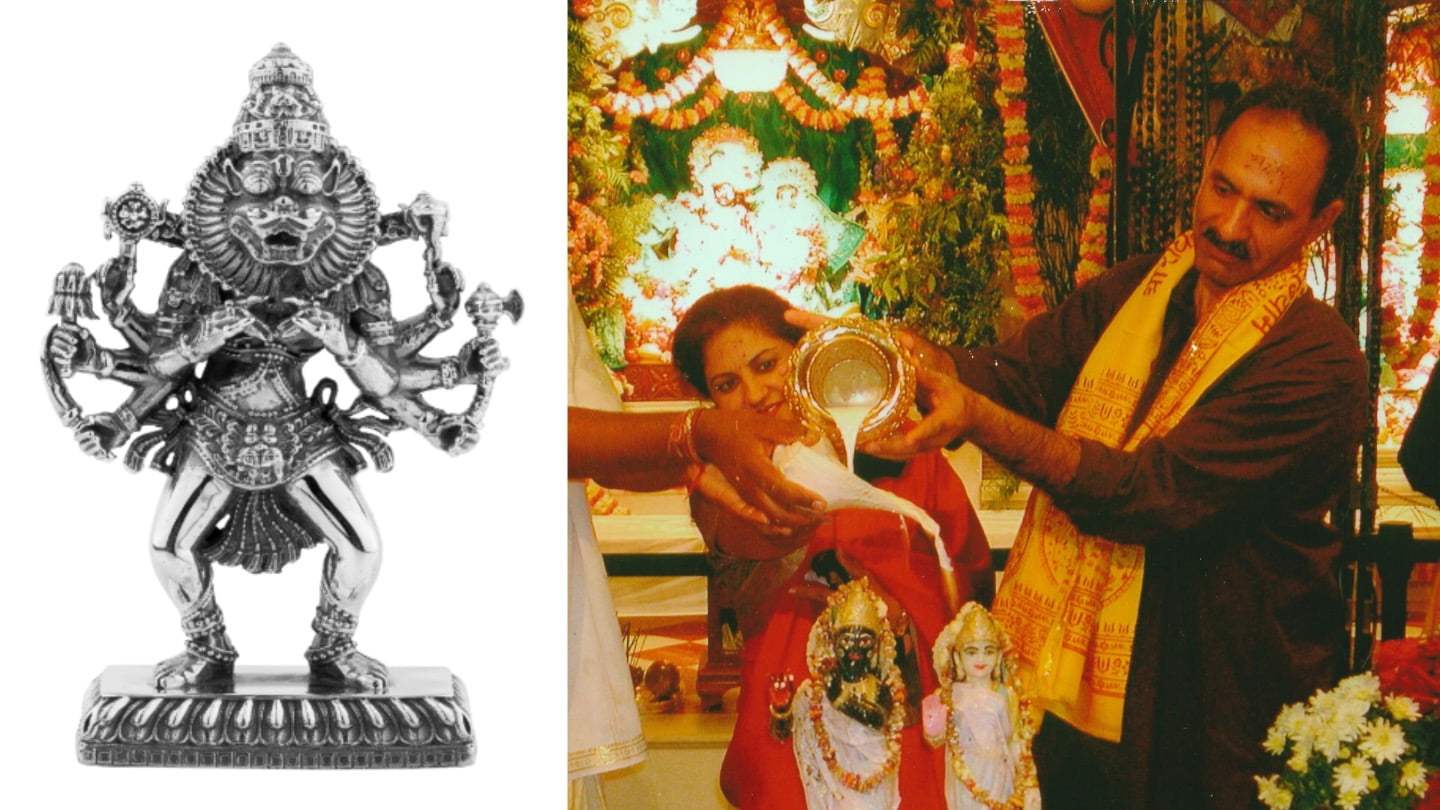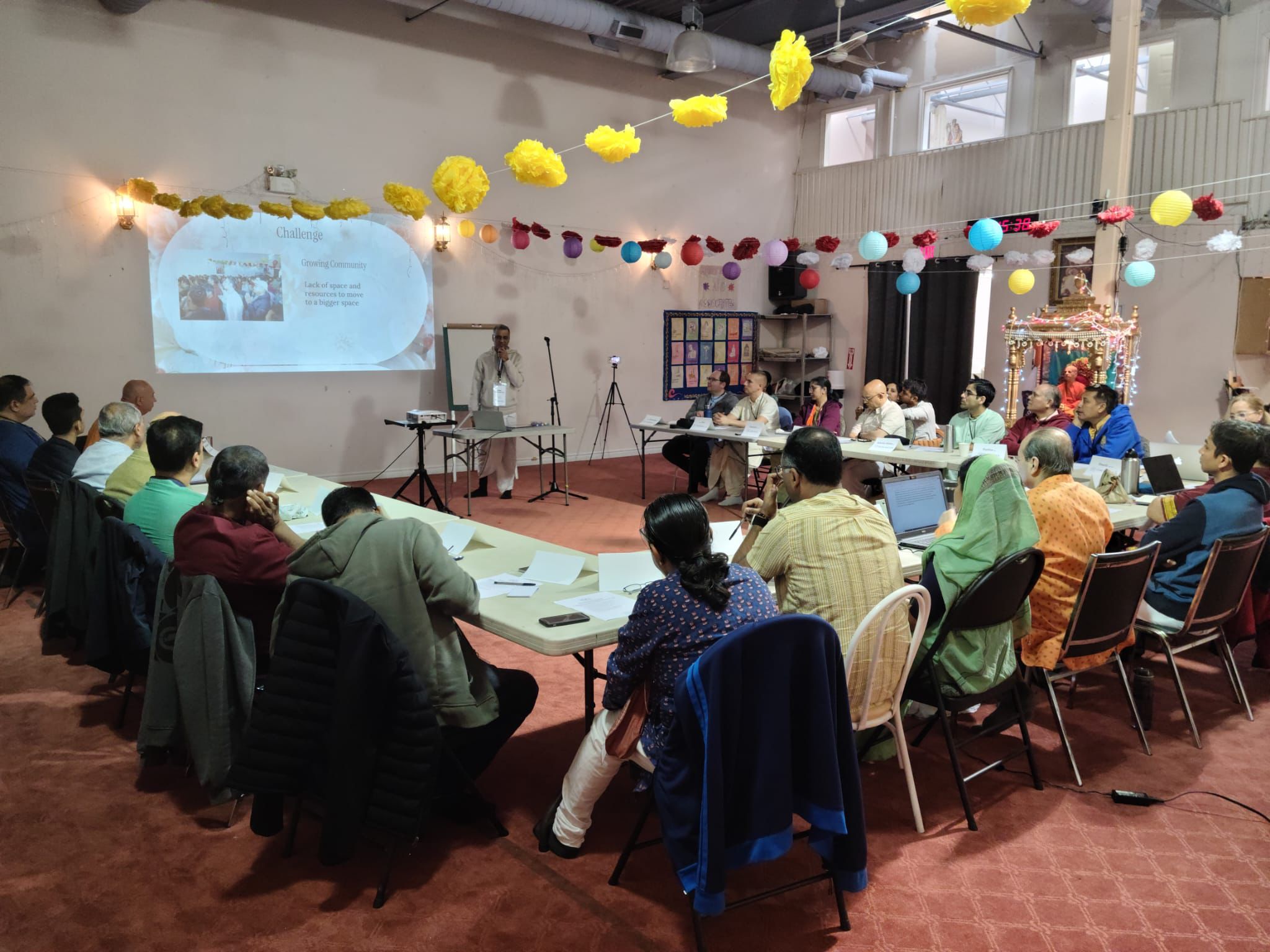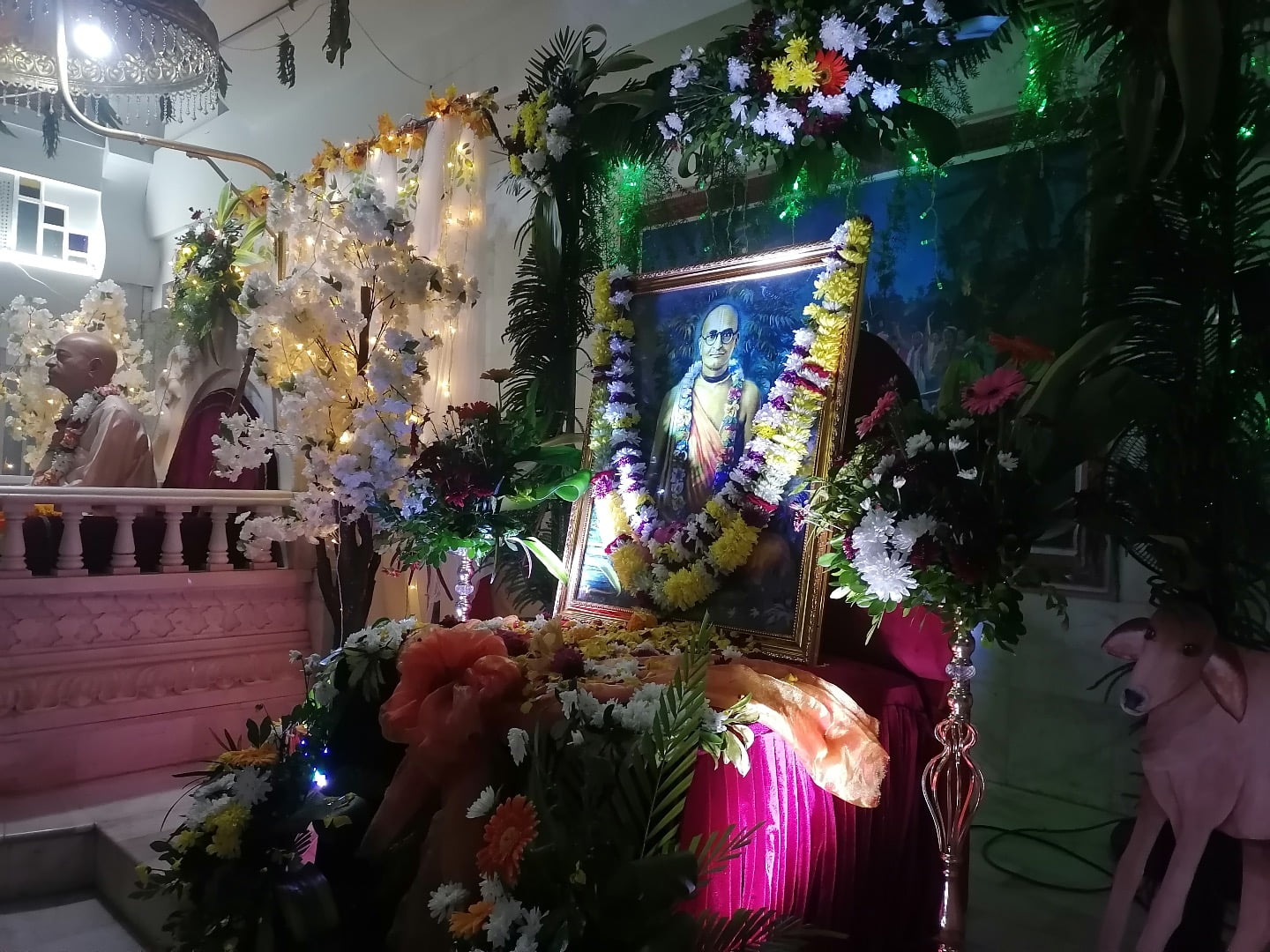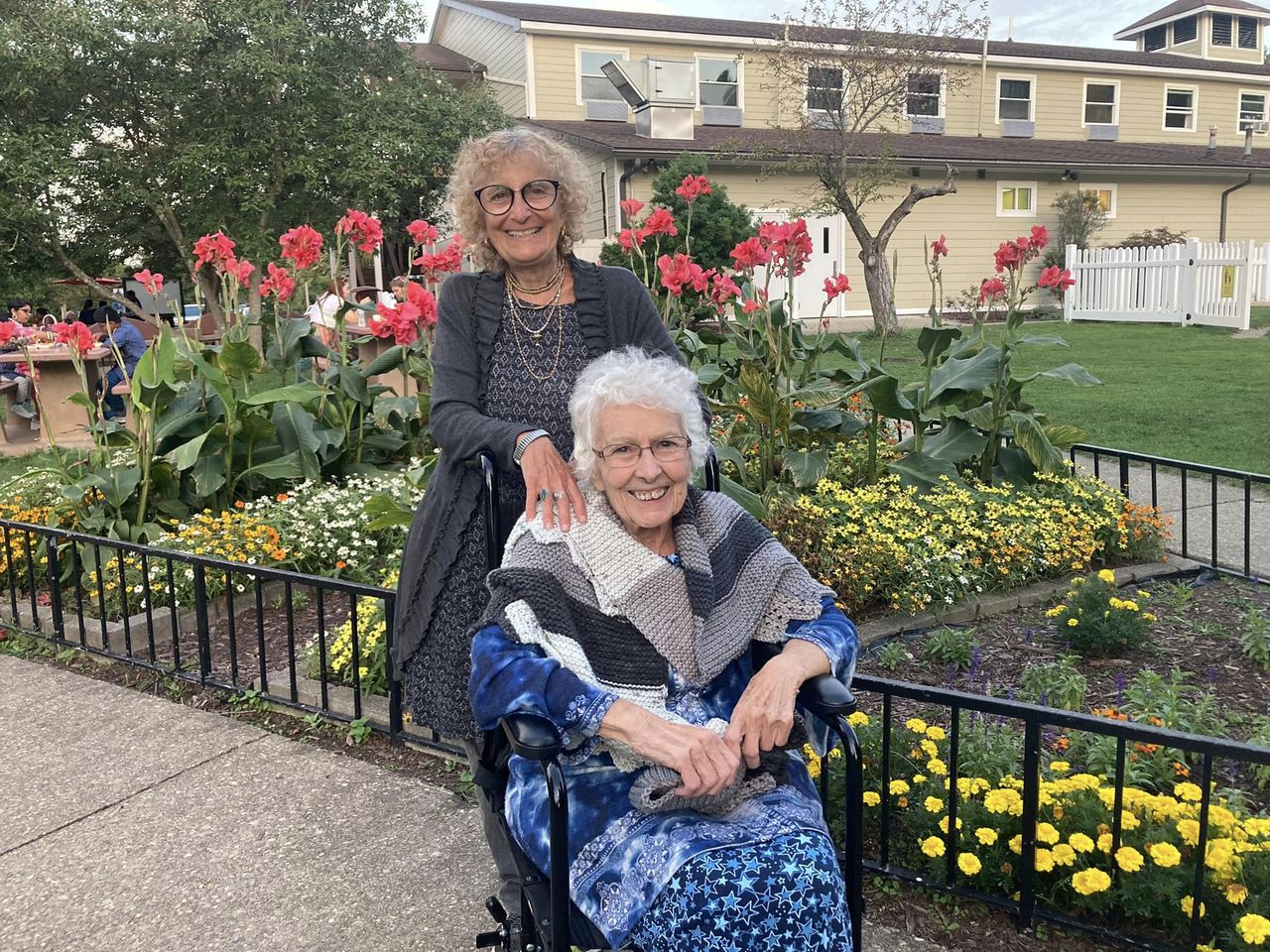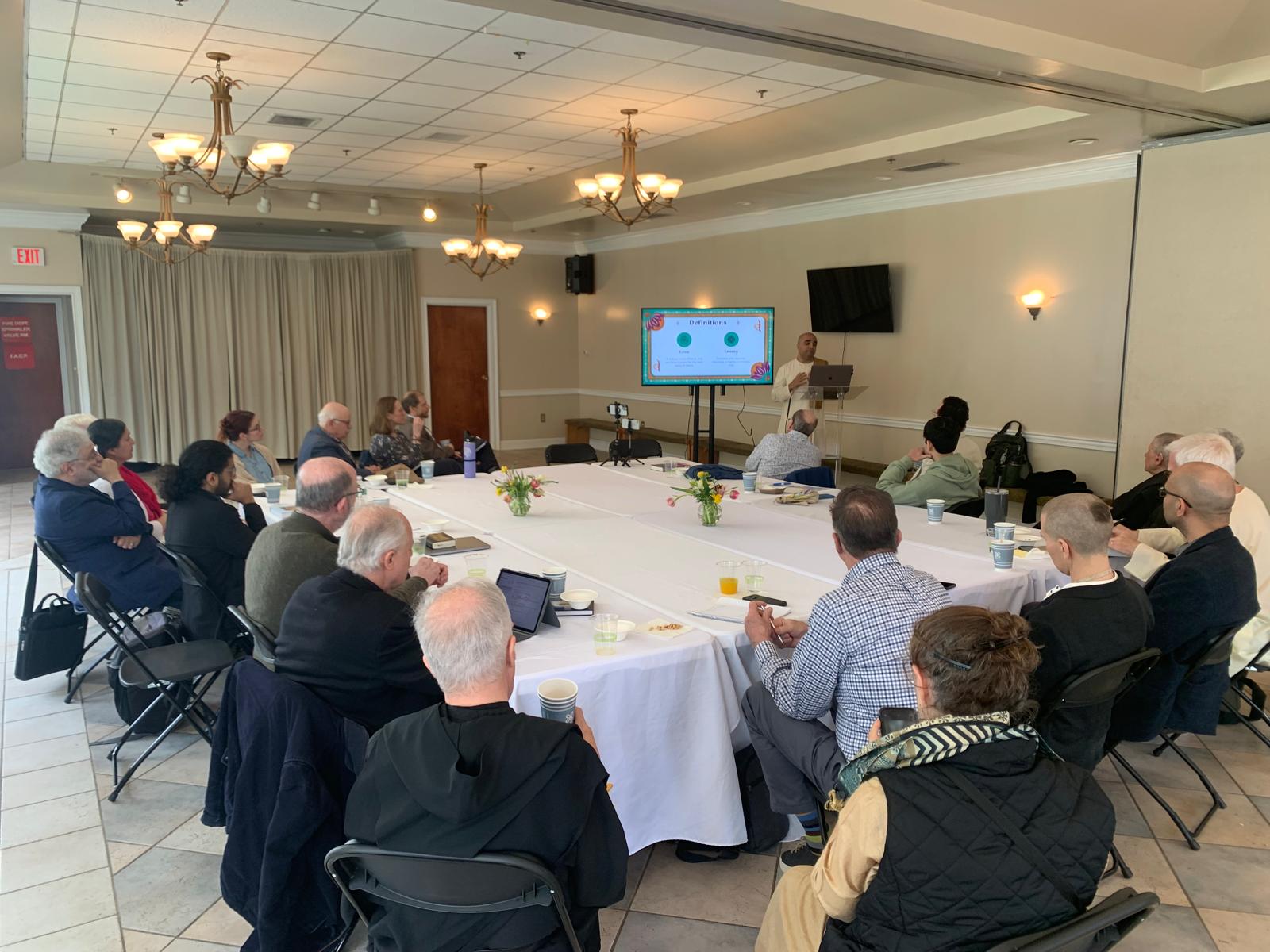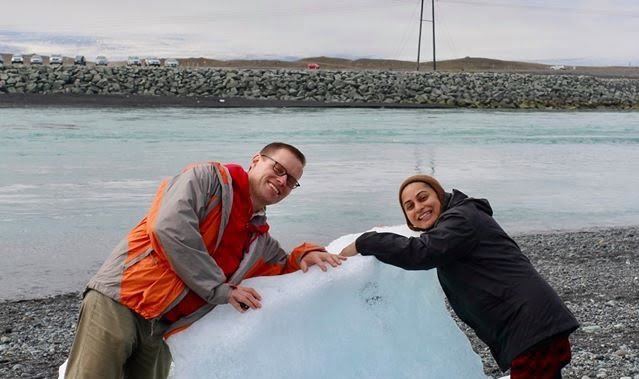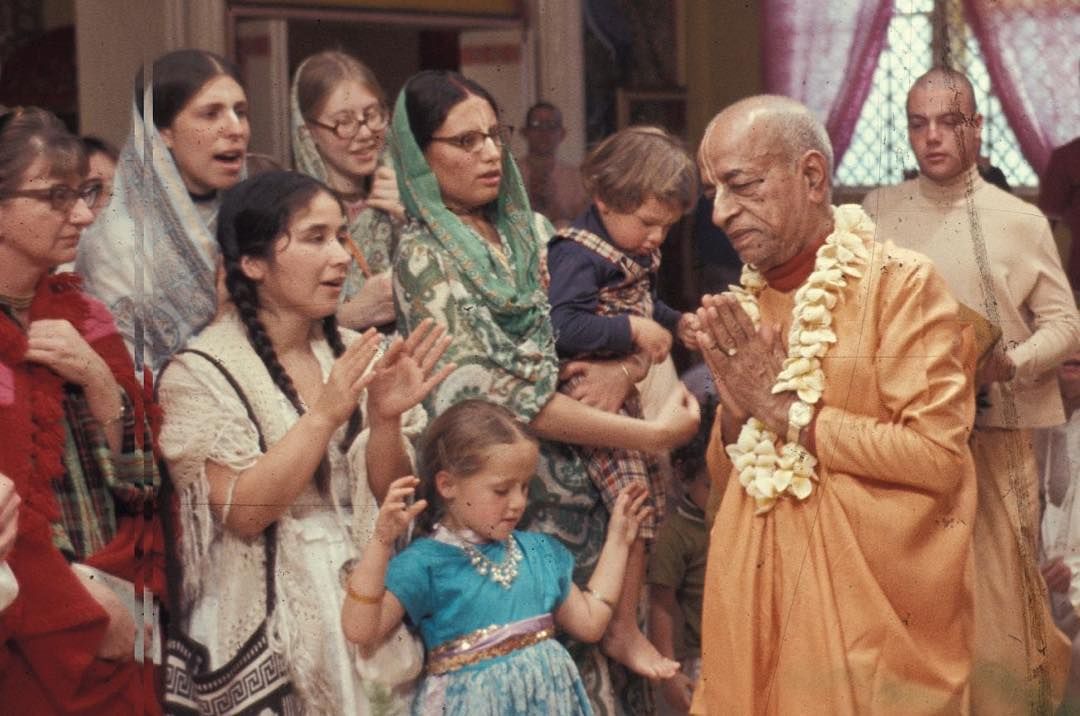Manipur Dance Festival Entertains, Inspires, and Educates
By Basu Ghosh Dasa | Mar 06, 2010
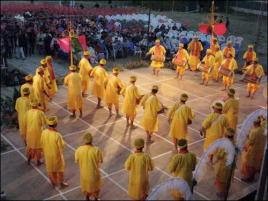
Devotees organized the first International Indian Classical Dance Festival, “Indiclad,” at ISKCON’s Sri Sri Radha Krishnachandra “Manimandir” in Imphal, Manipur, this February.
Manipur, a state in the far northeast of India, borders with Myanmar, formerly known as Burma. Although the erstwhile Kingdom of Manipur came under British rule during 1891, the country still proudly wears its strong Vaishnava heritage on its sleeve.
Alongside Indiclad, ISKCON Manipur organized a convergence seminar entitled “A collaborative and holistic approach to address the issues of HIV infection and drug abuse prevention” on the temple premises.
The “Indiclad” festival, which featured dancers from India, Malaysia, France and Bangladesh, ran for four days from Thursday February 18 through Sunday February 21. The convergence seminar, meanwhile, was held on February 19 and 20.

ISKCON gurus Hanumat Preshaka Swami, Bhakti Vinoda Swami, and 81-year old Manipur native Vyasa Tirtha Swami attended, as did many other notable ISKCON leaders and devotees from across India, Spain, Mauritius, Mexico, Peru and Australia.

Indiclad was inaugurated by Manipur’s Chief Secretary, Sri D.S. Poonia, who is married to a native Manipuri. Speaking at the event, Poonia praised Manipuri culture and ISKCON’s activities in the region.
Kicking off the festival was a traditional Manipuri “Harinam Sankirtan” chanting party consisting of one hundred and four artists, all dressed in traditional white dhotis, harinam shawls, and Manipuri turbans. Twenty or thirty played Manipuri mridanga drums known locally as pungs, while fifty more played kartala cymbals. The kirtan program, with its elaborate dance arrangements, went on for more than half an hour.

Next came introductory dances by several featured performers. Sri Kalamandalam V.R. Venkitt of the Uma Memorial Kalalayam of Calcutta performed a Kathakali dance with his troupe in traditional Kerala style. An Odissi dance number by the “Sutra Dance Theater” performers from Malaysia, a solo Manipuri dance by Kumari Th. Ibemubi Devi, and a solo Odissi dance by Sita Dasi from France all followed.

The “convergence seminar” began on Friday morning, with Dr. Jayenta Singh of RRPC Manipur explaining the government’s efforts to address the problem of drug abuse by counseling and rehabilitation. Manipur is part of Southeast Asia’s infamous Golden Triangle of narcotics peddlers, and Singh expressed grave concern about youth who have taken to drugs and are being used to peddle drugs by unscrupulous international gangs.

Speaking next, Dr. Pramod Kumar of the Manipur Aids Control Society expressed the desire that ISKCON organize more seminars to discuss the problem of drug abuse and AIDS in Manipur. Giving an overview of the present scenario in Manipur, he opined that much needs to be done, and that involvement from both NGOs and from the government should expand. He also presented technical statistics regarding the problems Manipur is facing.
Bhakti Vinoda Swami’s Powerpoint presentation, meanwhile, posited that “attraction to meat eating, intoxication, illicit sex and gambling is an age-old malady of the conditioned souls.”
“Such habits can be changed only by getting a higher taste,” he said, quoting Sri Krishna in the second chapter of Bhagavad-gita.

He added, “When he went to America, ISKCON’s founder Srila Prabhupada gave the holy name to youth who were searching for happiness by misusing drugs. ISKCON will be happy to work with NGOs and with the government on this proven spiritual solution, drawn from the rich vaishnava culture of Manipur, to help alleviate the acute problem of drug abuse in this wonderful land.”
Hanumat Preshaka Swami spoke last, strongly advocating to the esteemed audience—which included the government of Manipur’s Social Welfare Director Sri P. Sarat Sharma—that a spiritual solution was the best way to solve the problems of both HIV and drug abuse.
The following evening, on Saturday February 20, Manipur’s “resident sannyasi” Bhakti Vyas Tirtha Swami inaugurated the program with a welcoming speech. Kolkata University Professor Samaresh Bandhopadhyay, Sangeet Natak Academy award winner Dr. Sunil Kothari, and former Professor of Dance at New Delhi’s Jawaharlal Nehur University Padma Shri also spoke, welcoming the crowd.

Manipur resident Niki then kicked off the entertainment, with a dance rendition of Kavi Jayadeva’s famous Sanskrit poem Das Avatar.
An elaborate one-and-a-half-hour performance by Malaysia’s Sutra Dance Company, entitled “Spellbound,” followed. The Company’s director Sri Ramli Ibrahim, a renowned and highly trained exponent of Odissi dance, expressed his love for Indian culture and Indian traditional dance in a subsequent speech, as well as his delight at visiting Manipur for the first time.
Next up was a solo Odissi dance by Sita Dasi of France, who resided in Bhubaneshwar, Orissa for twelve years of her young life, many of which she spent studying dance.

The concluding session of the convergence seminar, meanwhile, began with a Powerpoint presentation by Lila Purushottam Das, an Associate Professor of Electrical Engineering at IIT, Kanpur, who presented collaborative and holistic approaches to HIV and drug addiction prevention.
“The present society is facing many related problems, and solutions must be found based on the root cause of these problems,” Lila Purushottam said. “The key to understanding the root of a problem is to ascertain the problem through correct knowledge.”

Presenting the vedantic approach to knowledge acquisition, he then explained elements of collaborative and holistic approaches, including education, the role of spiritual organizations, Government patronization, mass awareness campaigns, seminars and retreats, health camps, and youth participation.
Finally, Lila Purushottam proposed three important steps to tackle the problems of HIV and drug abuse: a village and farm-centered life that says no to factories, compulsory gurukula education for Indian children, and rehabilitation of HIV-infected/drug-addicted people in spiritual health camps.
Presentations by Dr. Krishnapriya Das of ISKCON New Delhi, Professor Samaresh Bandopadhya, and Hanumat Preshaka Swami followed, all featuring interactive question and answer sessions and open discussion on various points.

The third day of Indiclad saw Kalamandalam Sri V.R. Venkitt and his Kathakali party perform two lengthy and elaborate dances. The first, “Poothana Moksham,” told the story of how the witch Putana tried to kill baby Krishna, from the tenth Canto of Srimad Bhagavatam. Sri Venkitt, in “strivesham” (dressed as the woman Putana), portayed this Krishna-lila as a solo dance.
Next came the multiple performer number “Kiraatarjuna,” depicting the Mahabharata tale wherein Arjuna, performing penance in the Himalayas to please Lord Shiva, confronts Lord Shiva and Parvati disguised as hunters, or “Kiraatas.”
During the performance, there was a sudden drop in the already chilly temperature, yet the musicians accompanying the Kathakali dance continued to got shirtless, as per the ancient traditions of Kerala.
Divya and Diksha Upreti, twins from New Delhi, were up next, performing three Kathak dance numbers. “Harinam prachar,” a Manipuri dance number by Lianda Classical academy, ended the evening.

The last day of the festival—Sunday, February 21—delivered a mega program that included seven dance numbers from the various Indian classical dance styles. Guru N. Shyamchand and his party of 124 musicians and dancers ascended the stage first, wowing the crowd with their performance of “holi nama sankirtana,” featuring the famous Manipuri “twirling drum dance.”
ISKCON Manipur’s own Ranga Niketan dancers—who perform an annual world tour—followed with their “Vasanta Rasa” dance, depicting Lord Krishna’s spring “Rasa-lila”.

Ajit Dasa appeared next, singing a Manipuri song glorifying Srila Prabhupada, ISKCON Manipur’s inspirational leader the late Bhakti Swarup Damodar Swami, and the holy name of Krishna.
Srimati Tamman Rehman of Dacca, Bangladesh, then performed three intricate Manipuri solo dance numbers, quickly changing costumes for each performance.
Dr. N. Nara Singh, Former Minister of Culture for the Government of Manipur, introduced the next dance, an enthralling Kathak piece in which the male performer Sri. R. K. Sanatan appeared dressed as a woman.

The night concluded with Kumaris Malabika Sen of Kolkata and Mahima Sandoval of Spain performing Bharatanatyam dance numbers with live musical accompaniment.
ISKCON Imphal president Ajit Dasa considers the event a success, and feels that it will rekindle interest among Manipur’s youth in the country’s traditional Vaishnava performing arts. “We hope they will be inspired when they see that foreign nationals have so sincerely taken up these art forms,” he says.






